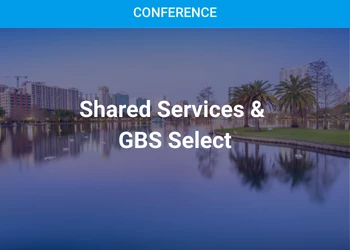Serving the Globe from India – Still?
Add bookmark
BH: Rita, with SSON’s Indian event coming up, I wanted to ask you some questions about India’s role in the global services delivery marketplace. Specifically: given the much talked about wage inflation and the fact that other Asian countries are entering the market at a lower cost than is the case for India today – to what extent is India’s ranking as a location of choice sustainable?
RS: What you are talking about is the competitive advantage or business case for doing work in India. I’m going to have two parts to my answer. What I think one can say very clearly is that we’re working towards a more inclusive business. There are all kinds of business cases to make for inclusion, but what I can say is that compared to other global players India is much further along the spectrum of being an inclusive market. What I mean to say is that in India you find employees coming from tier two and tier three – there are businesses emerging in tier two and tier three towns, supporting this industry. It’s really becoming a space that’s inclusive in the sense of economic development.
BH: Do you mean specifically for ITO?
RS: No, I’m talking both IT and BPO. With the BPO industry, we can speak specifically about the emergence of these rural BPOs, or BPOs that have a specialised focus on persons with disabilities, or women, or maybe tribal communities. That’s what I was referring to.
BH: Is that what the NASSCOM foundation focuses on, Rita?
RS: Yes, Barbara. We aim to leverage technology and the IT-BPO sector to develop India. We are doing some research into how we can support the business growth of rural BPOs. What’s been fascinating is that we have seen other parts of the world trying to gain an understanding of what the India experience has been, in order to grow the business in their countries. Many organisations from Africa, for example.
BH: Are you saying that India can sustain its position in the global markets because of changes happening in the market, such as the emergence of rural BPO to counter the increasing labour cost in the more developed areas?
RS: Perhaps it would be better to say that these changes are complementing the mainstream BPOs so that they can focus on the more knowledge-based business process outsourcing.
BH: This emerging rural community of service providers – it’s feeding the need of the more traditional BPO, is that correct?
RS: Yes. They’re creating pockets where there might be a smaller number of seats: 100 or 200 seats, as opposed to the thousands of seats that you find in the big cities or the big hubs. But they’re able to do the lower transaction processing at the same quality, using the same security standards and at the same levels as the larger centers.
BH: And how would you find this emerging provider group? Say someone reads this and is interested in finding out more, how would they make the connection?
RS: I think if you were to just Google rural BPOs, you would probably come up with half a dozen names, it’s becoming that prevalent. Rockefeller Foundation in partnership with Monitor Group’s Inclusive Markets team have done a preliminary study which includes some of the more established players. But just like the growth of other social businesses, new entities are frequently getting established.
BH: But it’s not something that NASSCOM brokers, as such.
RS: That’s an interesting thought. We’re just getting started in terms of providing some thought leadership in this space and one of the things that we’ve thought more about is connecting rural BPOs to mainstream BPOs and getting the mainstream guys to subcontract to the rural organizations. Much of that brokering that you mentioned is happening behind the scenes. We’re not necessarily creating a database but I think as time progresses we’ll certainly explore something like that.
BH: Back on the global competitive market … is there a new edge to how India is competing with emerging countries? Are you witnessing a change on the part of Indian BPO or service provider that would help sustain their position?
RS: I think what you are seeing is that the talent is becoming more diverse and for that reason you’re seeing a little bit more of a competitive advantage; diverse from the standpoint of education and socio-economic background. I think what’s also happening is a lot more systemisation of the skills that are required for the BPO sector. NASSCOM itself has created a certification programme for folks that are looking to be employed in the BPO sector. We have worked with the industry and the NGO sector to come up with training content. So, we think collaboration and formalisation may drive India’s competitiveness.
I will tell you that the countries that are talking to us to get some knowledge in terms of understanding the development of this sector for their own development have been in Africa – South Africa and Kenya, for example. But it’s not necessarily about competition; there’s really quite a bit of business out there. Even when we consider "the vision" for the outsourcing sector – NASSCOM and McKinsey did a joint report on the vision for the IT-BPO industry, "Perspective 2020" – we find that in terms of business, there is so much growth that we’re expecting, internationally and domestically. By domestically I mean Indian businesses, but I also mean the Indian public sector. We are seeing e-governance and various activities emerging throughout the government and this is going to pose a huge opportunity for the Indian BPO sector. It’s happening already. And some of that is actually also fuelling this growth of local, smaller, rural BPOs.
BH: This India-to-India business, in other words, the emergence of a services industry to provide services specifically to Indian-based companies whether private or public sector, so this is an area in which you expect significant growth?
RS: I believe so. Given a country where there are already half a billion users of cell phones, for example, and given that our economy is doing so much better than the Western economies, you do see the need for growth of the services sector from that standpoint.
BH: You are giving a keynote presentation at Shared Services & Outsourcing Week India, in December. What is your main message to the audience going to be?
RS: Well, I am excited about having the chance to address delegates about the competitiveness of India’s BPO industry based on the emergence of these responsible businesses, the rural BPOs, and such; but also in terms of the makeup of existing BPOs and existing captives in the sense that social responsibility is being taken much more seriously now. We recently, as a nation, put in place National Voluntary Guidelines on Social, Economic & Environmental Business Responsibility. We didn’t go to the extent of calling them CSR, though, because everyone equates CSR with only corporate philanthropy. I think that is a really important part of our competitiveness and how the businesses are going to grow in the future. I am excited to bring this angle forward, particularly from the perspective of diversity and inclusion. My big message is that diversity of your team adds to your business, and the BPO industry has been the most open and most inclusive in this arena. I think that’s going to add to India’s competitiveness.
BH: Thank you, Rita, for taking the time to speak with me.
RS: My pleasure, Barbara.
| Meet Rita Soni in person at: SSO WEEK INDIA 2011: Strategic Global Outsourcing & Global Business, December 05 - 08, 2011 * Le Meridien, Bangalore, India. |





















